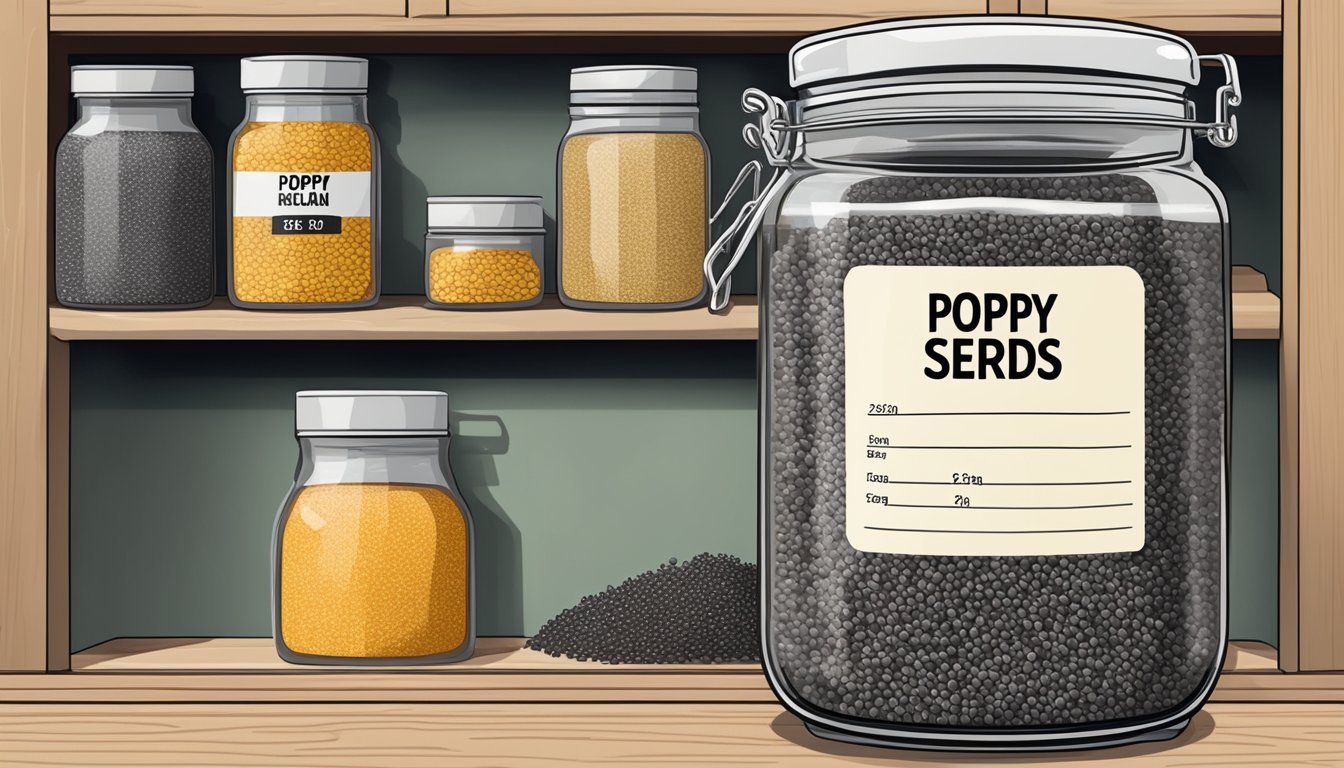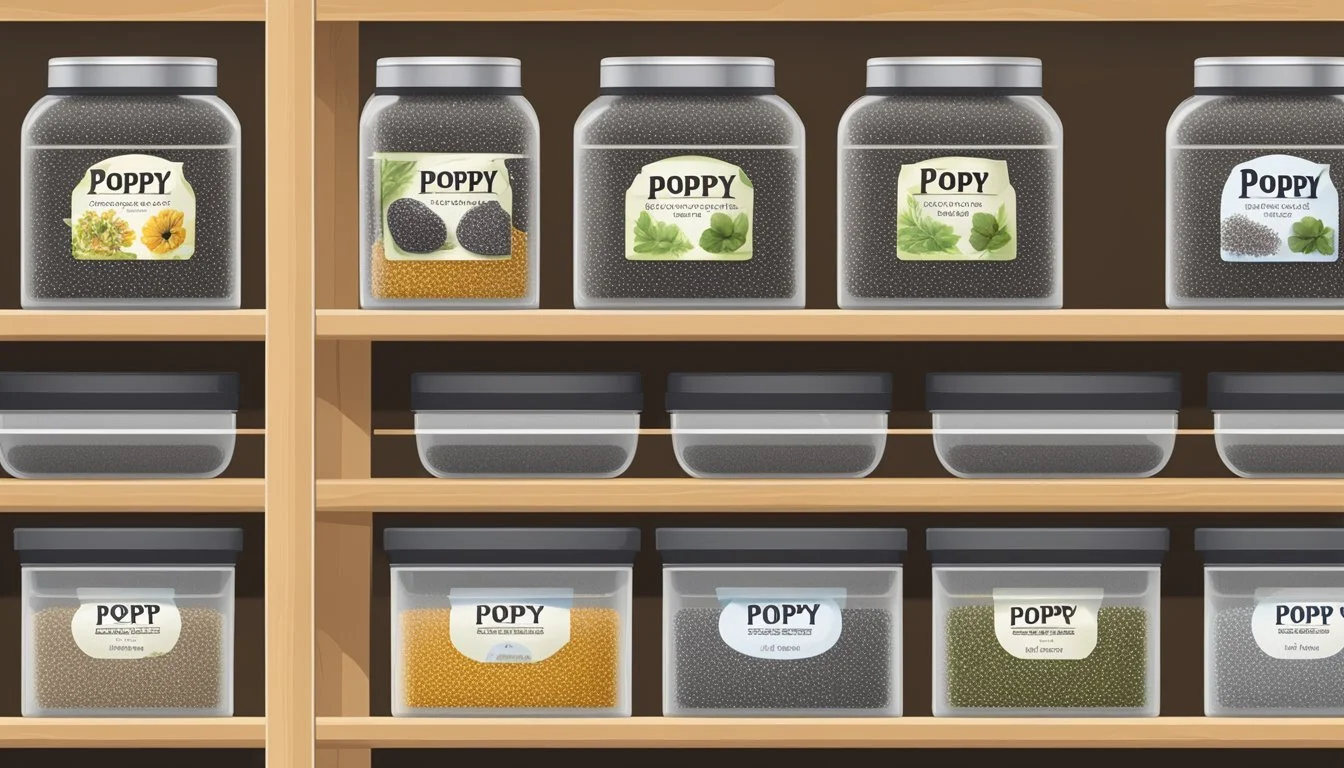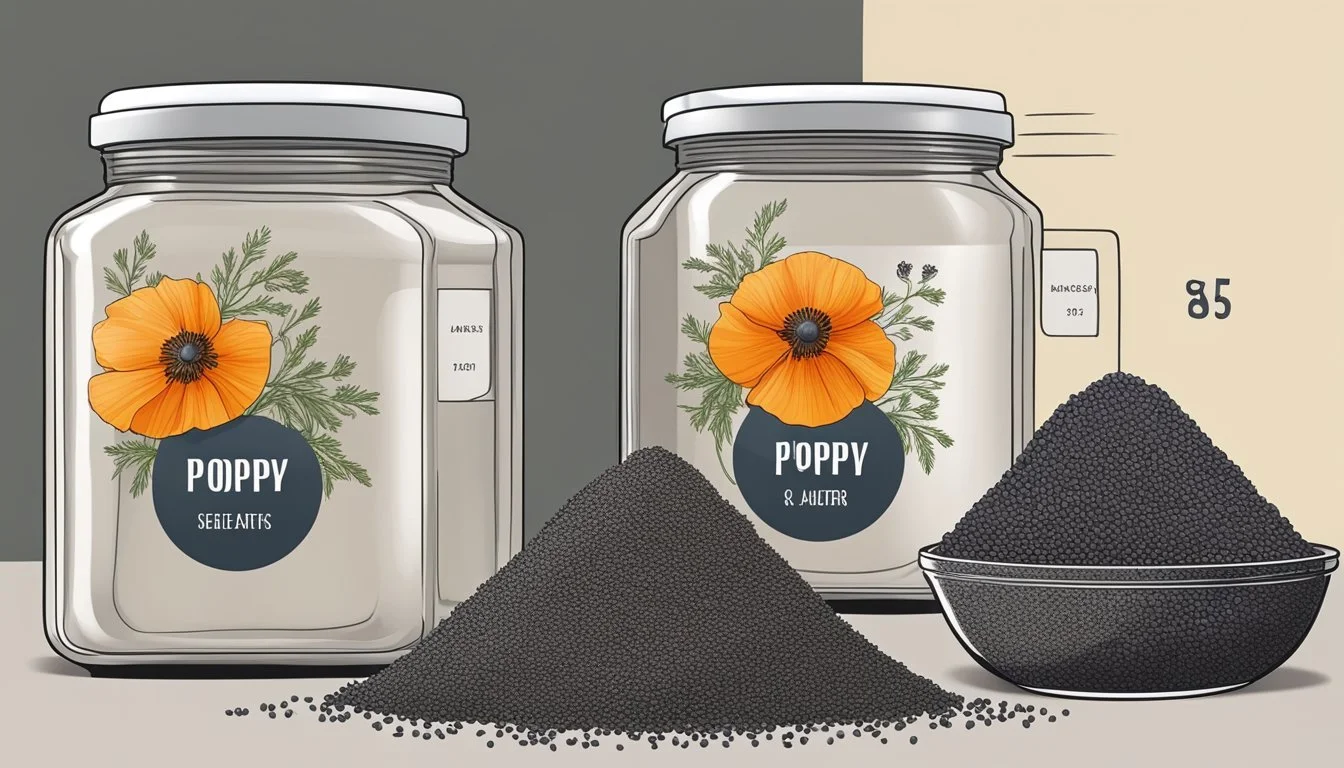How Long Do Poppy Seeds Last?
Shelf Life and Storage Tips
Poppy seeds (how long do seeds last?) have a reputation for being resilient, but like many pantry staples, their longevity hinges on storage conditions. Under ideal circumstances, these tiny seeds can retain their quality for multiple years. Unopened and stored at room temperature, poppy seeds can maintain their freshness for about three to four years. Once opened, proper storage becomes crucial to extend their shelf life—keeping the seeds in an airtight container away from heat and moisture helps preserve their flavor and prevents rancidity.
However, for poppy seed oils (how long does poppy seed oil last?), the shelf life is typically shorter. Even when stored properly in a cool, dark location, poppy seed oils can last around two years before their quality starts to decline. It's important to note that the "best by" date provided by manufacturers serves as a guide for consuming them when they are likely at their peak quality. Storing poppy seeds in a refrigerator can further prolong their freshness, slowing down the degradation process that heat and light accelerate.
To maximize longevity, storing the seeds in a cool, dry place, ideally between 50-60°F (10-15°C), shields them from conditions that can hasten spoilage. Keeping them away from direct light exposure and in an environment where moisture and oxygen are minimized ensures that the poppy seeds remain suitable for culinary uses for as long as possible. Consequently, a dedicated approach to storage can significantly extend the lifespan of your poppy seeds, making them a lasting ingredient in your spice cabinet.
Understanding Poppy Seeds
Poppy seeds are edible seeds derived from the poppy plant, known for their nutty flavor and versatility in both sweet and savory dishes. These small, oil-rich seeds have been a staple in culinary applications for centuries and bring both flavor and nutrition to a variety of recipes.
Types and Varieties
There are numerous species of poppies, but the most widely cultivated for edible seeds is the Papaver somniferum. This species is prized for its seeds, which can vary in color from slate blue to white. The Eschscholzia californica, or California poppy, is another species, though not commonly used for its seeds. While Papaver somniferum remains the primary source for culinary poppy seeds, each variety offers a slightly different nutty flavor profile and is selected based on culinary need and regional preference.
Nutritional Profile and Health Benefits
Poppy seeds are a rich source of essential nutrients. They contain a variety of beneficial compounds, including:
Fatty acids: Predominantly unsaturated fatty acids that contribute to heart health.
Minerals: A good source of calcium, magnesium, and phosphorus.
Fiber: Contributes to digestive health.
In terms of health benefits, these seeds are known for their role in promoting digestive health, thanks to their dietary fiber. The presence of magnesium can support bone health, and the unsaturated fats contribute to cardiovascular wellness.
Poppy Seed Uses in Culinary
Poppy seeds have a distinct, mildly nutty flavor that enhances a multitude of dishes. They are most commonly found sprinkled over baked goods such as bread, bagels (how long do bagels last?), and pastries for added texture and flavor. In savory applications, they are often incorporated into salad dressings, crusts, and as an additive to thicken sauces. The seeds can also be pressed to produce poppy seed oil, which is used for its flavor in various culinary creations. Their versatility in both sweet and savory contexts makes them a valuable addition to any kitchen pantry.
Shelf Life Determinants
The shelf life of poppy seeds is influenced by several specific conditions and identifiable spoilage signs. Managing these factors effectively can help extend the freshness and usability of poppy seeds.
Factors Affecting Freshness
Storage Conditions:
Temperature: Poppy seeds last longer when stored in a cool and dark place. Exposure to heat can accelerate spoilage.
Moisture: Keeping poppy seeds in a dry place is essential to prevent mold growth. Moisture is one of the primary enemies of seed freshness.
Air: Storing seeds in an airtight container reduces exposure to air, which can lead to oxidation and rancidity.
Light: A cool and dark place, such as a pantry or refrigerator, protects poppy seeds from the degrading effects of light.
Signs of Spoilage
Odor: A change to a rancid or unusual smell indicates spoilage.
Discoloration: Any noticeable change in color could suggest the seeds are going bad.
Mold: The presence of mold or any other growth on the seeds is a clear sign of moisture-related spoilage.
Texture: Seeds that clump together could have been exposed to moisture and may be at risk of spoilage.
By being attentive to these conditions and signs, one can ensure the longevity and safe consumption of poppy seeds.
Proper Storage Techniques
To maintain freshness and potency, proper storage techniques for poppy seeds are crucial. Employing the right methods can ensure these seeds retain their quality for a maximum duration.
Home Storage Solutions
For optimal storage, individuals should place poppy seeds in an airtight container to protect them from moisture and humidity. A cool and dark place in the pantry is an ideal environment to preserve their flavor and freshness. Direct sunlight or heat can accelerate spoilage, so a location away from the stove or window is preferable.
Pantry Storage: Use airtight containers, such as glass jars with tight-sealing lids.
Avoid Exposure: Keep containers away from heat and light sources.
Extending Freshness and Viability
To extend the shelf life further:
Refrigerator: Storing the airtight container in the refrigerator can keep poppy seeds fresh for years.
Freezer: For longer viability, one can freeze poppy seeds in freezer-safe bags or containers, which can be effective for up to one year.
Storage Method Container Type Expected Shelf Life Pantry Airtight Container Up to 1+ Years Refrigerator Airtight Container Several Years Freezer Freezer-Safe Bag/Container Up to 1 Year
By following these storage tips, the seeds' natural flavors and potency are better preserved for future use.
Poppy Seed Gardening Tips
In this section, we explore the specific conditions and steps essential for growing poppies successfully, from seed sowing to harvest.
Optimal Conditions for Growing Poppies
For a thriving poppy garden, gardeners should ensure full sun exposure and well-drained soil. These conditions replicate the native habitats of poppies, providing them with the environment they need to flourish. Poppies are adaptable to a range of hardiness zones, although they particularly thrive in moderate climates where summers are not too intense.
Sowing and Germination
When planting poppy seeds, a gardener must take into account that these seeds require light to germinate. The seeds should be sown directly onto the surface of the soil, without covering them, as they need sunlight to kickstart the germination process:
Sow seeds in early spring, or in fall if the climate permits.
Expect seeds to germinate in seven to 30 days, depending on the variety and conditions.
Harvesting and Collecting Seeds
After the poppy's blooming period in spring or early summer, seed pods will form and eventually dry out. For seed collection:
Allow the seed pods to dry on the plant.
Once dry, cut the pods and store them in a paper bag in a cool, dry place.
Harvested seeds can maintain viability for up to two years, and their shelf life can be extended by storing them in the refrigerator or freezer.
Recognizing Quality and Potency
When assessing the quality and potency of poppy seeds, one should focus on their viability and absence of spoilage. Freshness directly correlates with potency, thus it is vital to identify freshness indicators and signs of bad seeds.
Evaluating Seed Viability
Poppy seed viability refers to the capability of the seeds to germinate and grow into plants.
Germination Rate: Check the packaging for the germination rate, usually given as a percentage. Fresh seeds have higher chances of sprouting.
Visual Inspection: If they appear shriveled or discolored, their viability is likely compromised.
Storage Conditions: The storage environment impacts their viability. Seeds kept in an airtight container away from heat and moisture are likelier to retain their viability for 6 to 12 months.
Identifying Bad Poppy Seeds
Recognizing bad poppy seeds is essential to ensure the quality and safety of your food.
Odor: Poppy seeds should have a nutty scent. A rancid or sour smell indicates spoilage due to high oil content.
Discoloration: Seeds that have changed color or have become discolored may be bad.
Taste: Any bitterness in taste is a telltale sign that poppy seeds have gone bad and should be discarded. Fresh seeds will maintain their characteristic flavor.







